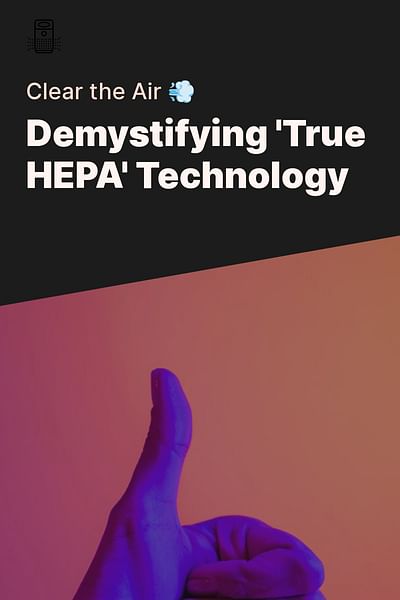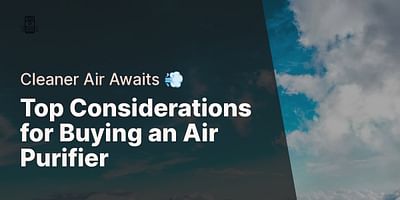Michael is a technology enthusiast who enjoys exploring the latest advancements in air purifier technology. He is always on the lookout for new features and innovations that can improve air quality and make life easier for consumers.
Understanding True HEPA in Air Purifiers
| Term | Definition | Importance in Air Purifiers | Example Brands with True HEPA |
|---|---|---|---|
| True HEPA | High Efficiency Particulate Air - a type of air filter that can trap 99.97% of particles that are 0.3 microns in size. | Ensures high level of air purification by trapping most allergens, bacteria, and viruses. | Levoit, Dyson, Winix |
| HEPA-like/HEPA-type | Filters that resemble the efficiency of True HEPA but do not meet the standards. They can typically trap 85-90% of particles. | Less efficient in air purification compared to True HEPA. Suitable for less severe air quality issues. | Some models of Honeywell |
| Non-HEPA | Filters that do not meet the HEPA standards. Efficiency varies widely. | Not as efficient as True HEPA or HEPA-like filters. May not be suitable for people with severe allergies or asthma. | Varies widely |
True HEPA, or High Efficiency Particulate Air, is a term that you'll often come across when researching air purifiers. It's important to understand what this means, as it can make a significant difference in the performance of your air purifier. In this article, I'll explain what true HEPA means and why it's important for air purifiers.
First, let's talk about what HEPA filters are. HEPA filters are designed to capture and remove particles from the air, such as dust, pollen, pet dander, and even some bacteria and viruses. These filters are made up of a dense network of fibers that can trap particles as small as 0.3 microns in size. To put that into perspective, a human hair is about 50-70 microns in diameter.
Now, when it comes to true HEPA, this term is used to distinguish between genuine HEPA filters and those that may not meet the strict standards required for HEPA certification. A true HEPA filter must meet specific criteria set by the United States Department of Energy (DOE). According to these standards, a true HEPA filter must be able to capture at least 99.97% of particles that are 0.3 microns in size.
So, why is this important for air purifiers? Well, when you're looking to improve the air quality in your home or office, you want to ensure that the air purifier you choose is capable of effectively removing harmful particles from the air. A true HEPA filter ensures that your air purifier is meeting the highest standards for particle removal, providing you with cleaner and healthier air.
It's worth noting that some air purifiers may claim to have "HEPA-type" or "HEPA-like" filters. While these filters may still provide some level of particle removal, they may not meet the strict requirements of a true HEPA filter. As a result, their performance may be less effective than that of a true HEPA air purifier.
In conclusion, when shopping for an air purifier, it's essential to look for one that features a true HEPA filter. This will ensure that you're getting the best possible performance in terms of particle removal and air quality improvement. At Air Purifier Inc, we review top brands like Levoit, Dyson, Winix, and Honeywell, all of which offer air purifiers with true HEPA filters. By choosing a true HEPA air purifier, you can breathe easier knowing that you're providing the cleanest and healthiest air for yourself and your loved ones.















